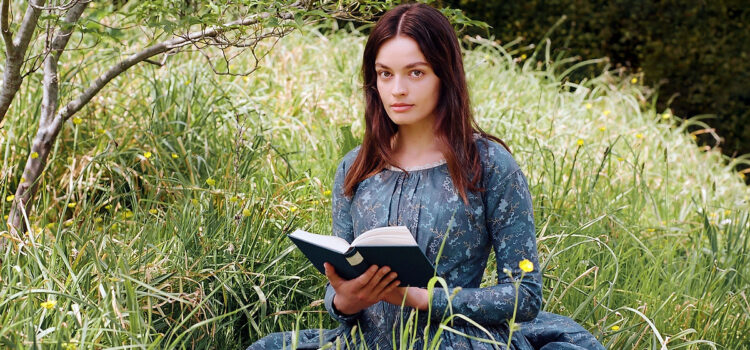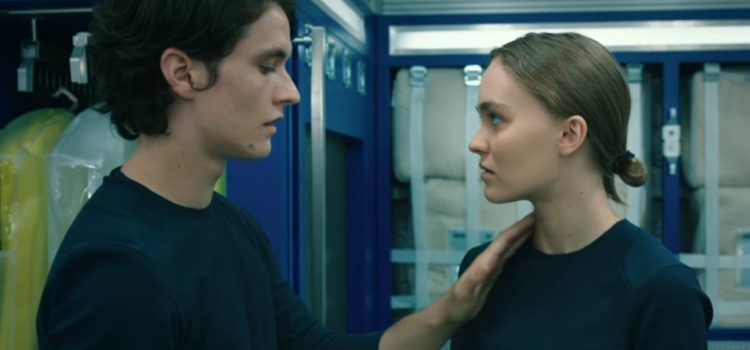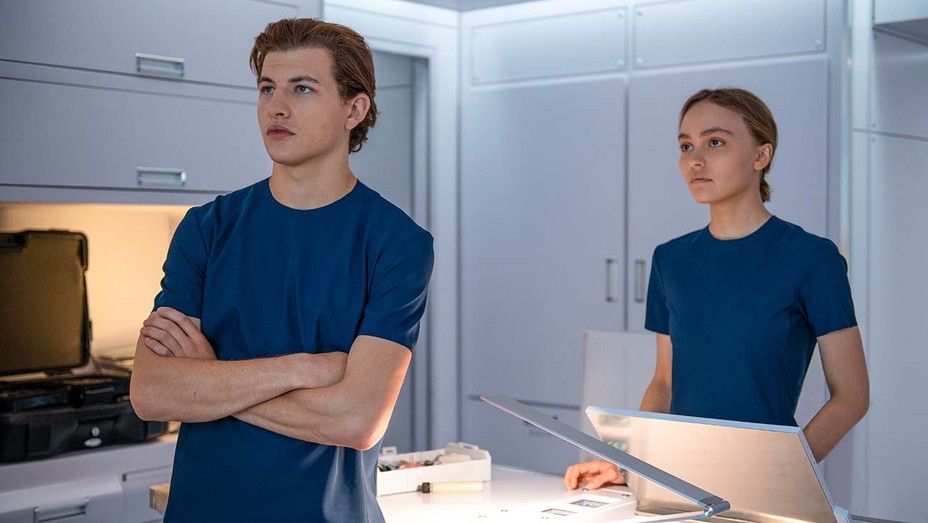By Alex McPherson
With a wonderfully multifaceted performance from Emma Mackey, director Frances O’Connor’s “Emily” is a vibrant, poignant, heartbreaking, and somewhat reductive story loosely inspired by the life of Emily Brontë— full of contradictory elements that entangle in interesting ways, not unlike Emily herself.
Tracing the events leading up to Emily writing the seminal novel Wuthering Heights, “Emily” takes place during the mid-19th century among the blustery moors and pervasively overcast skies of Yorkshire, England, as our heroine experiences joy, sorrow, and self-actualization in an environment where she’s pressured to conform to restrictive ideals.
We first see Emily on her deathbed, as her sister Charlotte (Alexandra Dowling, bringing much more to the table than “mean sister” energy) scolds her for writing the book and demands she explain how she conceived it. The camera (helmed by cinematographer Nanu Segal, in one of the film’s prolonged close-ups), rotates from horizontal to vertical, as we face Emily head-on and dive into both her, and O’Connor’s, imagination to see how it came to be.
Flashback to some years earlier, and the Brontës are actively mourning the loss of their mother. The household consists of father, Patrick (Adrian Dunbar), a conservative priest unsure of how to deal with Emily’s idiosyncrasies, and sisters Anne (Amelia Gething, charming but underused) and the prim-and-proper Charlotte, who, studying to become a teacher, is envious of Emily’s talents and self-hating in her own alternate paths to achieve what’s expected of her.
There’s also the squirrely brother, Branwell (Fionn Whitehead, in a devastating turn conveying both playfulness and real hurt), an aspiring writer and painter who Emily feels intensely close to; their bond proves nervously liberating as Branwell indulges in vices and trouble-making.
Emily herself is reclusive, brash, creative, brave, and vulnerable all at once — described as “the Strange One” by locals — who finds solace among the natural world, crafting poems that illuminate her complex inner thoughts. While her siblings find success and failure in their pursuits, Emily remains at the family estate, sheltered and repressed from embracing her calling. The arrival of handsome curate William Weightman (Oliver Jackson-Cohen), who ends up giving Emily French lessons, sparks something fiery within her — launching a romance where both parties are pulled between their passion and practical reality — with fittingly melodramatic, and, as “Emily” posits, inspirational results.
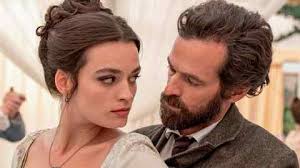
Although “Emily” doesn’t fully embody the unconventionality of its brilliant subject, O’Connor’s film shines as a tribute to imagination itself, illuminating the ways in which it frees and isolates, wrapped up in a gothic drama alive with raw, sensual energy. What’s lost in the sometimes clunky screenplay is more than made up for by the ensemble’s power, especially Mackey, who brings a tangibly lived-in authenticity to her portrayal, resisting easy classification at every turn.
Mackey, recent winner of the Rising Star Award at this year’s BAFTAs, who starred in “Sex Education” on Netflix and Kenneth Branagh’s “Death of the Nile” last year, commands attention.
O’Connor (herself an actor in such films as “Mansfield Park” and “A.I. Artificial Intelligence”) often centers her in frame, letting us observe subtle, and not so subtle, shifts in mood. The film refuses to paint her in broad strokes and, as a result, packs a visceral wallop as we ride this roller coaster of feeling along with her. We see Emily physically shrink from social interactions and light up when immersed in her writing: moments of high-strung anxiety and euphoric release.
She runs the emotional gauntlet over the course of the film — happiness, mischievousness, obsession, and crushing sadness — sometimes alternating between tones in the same scene, with Mackey helping ground even the most over-the-top developments. Her chemistry with Jackson-Cohen is sizzling, though their relationship is doomed from the start, and her sequences with Whitehead are similarly (uncomfortably) charged, creating a tragic love triangle that heads down a marginally predictable path for period dramas.
Accompanied by Segal’s lush, tactile cinematography, authentic costume design by Michael O’Connor, and an amazingly dynamic score by Abel Korzeniowski (mixing cacophonous strings with melancholy, sometimes removing and focusing sound entirely for dramatic effect), “Emily” is quite the sensory treat.
O’Connor incorporates magical realism throughout, bringing a near-supernatural tinge to Emily’s talent that deeply affects those around her. One pivotal scene, for example, involves a game where Emily, her siblings, and Weightman don a mask and pretend to be someone else. Emily pretends to be their late mother — disturbing everyone in the room to their core as the shutters blow open with a fierce wind, like a seance is taking place. It’s a frightening, though overcooked, instance of O’Connor’s stylistic bravado, illustrating storytelling as an immersive, unnerving force.
This memorable scene also ties into the competing forces that torment the characters, not just Emily, as they go about their lives. Emily refuses to conform to societal standards, while becoming isolated and othered as a result. She’s attracted to Weightman more as a vessel for her endeavors than traditional romance, but this dependence spells drastic consequences.
Weightman, himself a poet in his own way, albeit held back by religious expectations, is simultaneously drawn to Emily and petrified by guilt. Branwell battles addiction and self-doubt over his abilities as an artist, and Charlotte denies Emily’s worth, and her own interests, via deep-set insecurities. The film itself is torn between the more expected trappings of the genre and the fantastical, occasionally breaking free to present something surprising and irreverent.
And the narrative, for all its success in humanizing characters, ultimately winds up undercutting Emily’s own creativity to declare that Wuthering Heights was written largely through lived experience. Who knows how much of “Emily” actually happened, but its final act — full of last-minute revelations, crying, and swooning music — feels rushed, giving tidy resolution and clear takeaways from such a layered character.
It’s unfortunate that “Emily” leaves this crucial element of her being, her creative process, so disappointingly half-baked and based primarily on her experiences with men. O’Connor had a vast canvas to work with thematically here, and in this sense, she doesn’t treat Emily’s legacy with the reverence she deserves.
Her film is still profoundly affecting, with Mackey giving what will undoubtedly be one of the year’s most captivating performances.
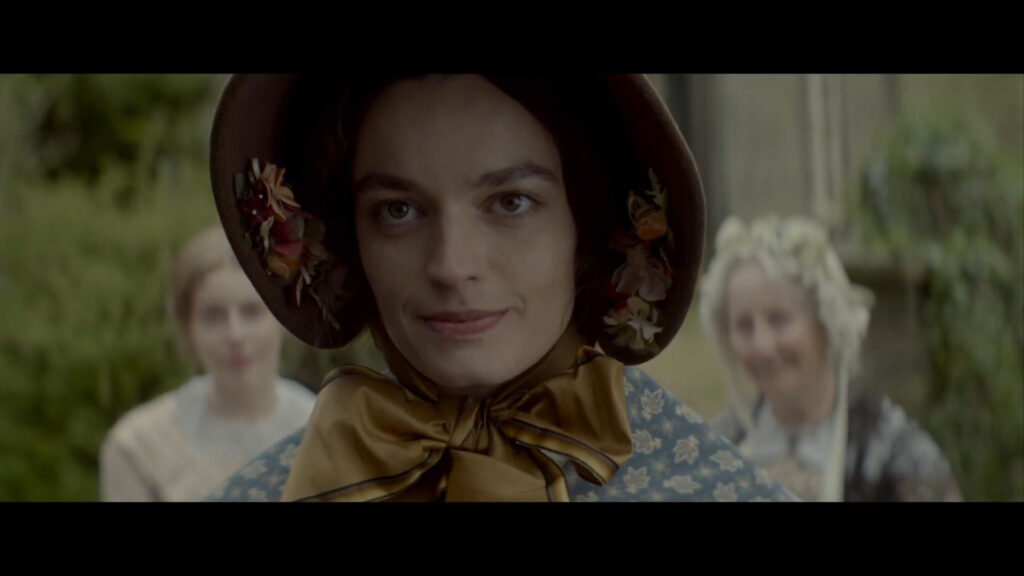
“Emily,” a 2022 biographical drama about writer Emily Bronte, her family and loves, is directed by Frances O’Connor and stars Emma Mackey, Alexandra Dowling, Fionn Whitehead, Adrian Dunbar, Oliver Jackson-Cohen, Amelia Gething and Gemma Jones. It is Rated Rated R for some sexuality/nudity and drug use, and is 2 hours, 10 minutes. It opens Feb. 24 in select local theaters. Alex’s Grade: B+.
Alex McPherson is an unabashed pop culture nerd and a member of the St. Louis Film Critics Association.

